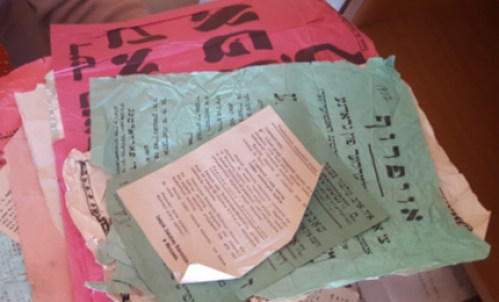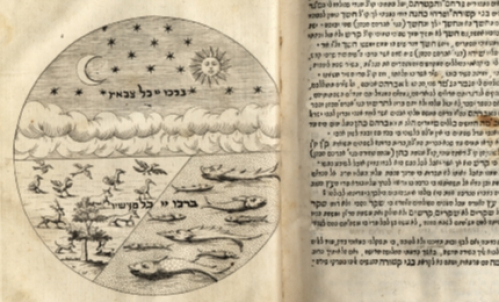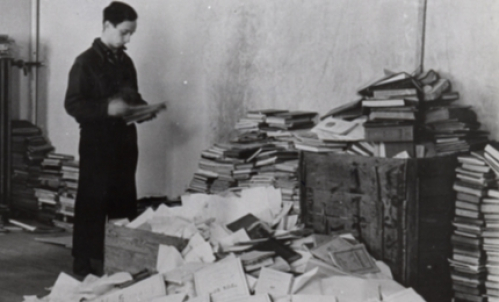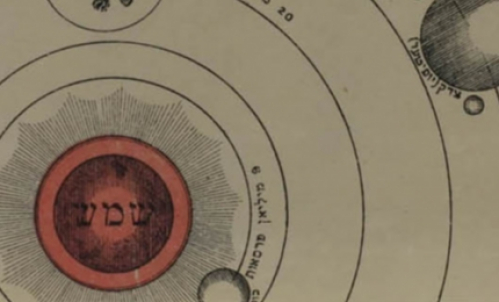In the Margins of Hebrew Books: Untold Stories and Hidden Histories
by ROBERTA NEWMAN
YIVO is currently nearly done with the digitization of books that come from the private collection of Matthias (Matisyahu) Strashun (1817-1885), an important Jewish book collector in Vilna who amassed about 6,000 books over the course of his lifetime. He bequeathed his collection to the Vilna Jewish community, which used it as the basis for a public Jewish library, which soon became one of the great Jewish libraries of Europe.
Strashun's library was looted by the Nazis, but remnants survived. After the war, the remaining books became the core of YIVO’s rare book collection. Other Strashun books came to light in Vilnius in the late 1980s and are now also being digitized as part of this project.
YIVO's Vilna Collections Project is committed to recreating the private Strashun collection, digitally reuniting books in the YIVO Library in New York with books in the National Library of Lithuania. This will provide an unparalleled opportunity for researchers to explore an important prewar Jewish book collection in its entirety, as well as the mind of a 19th-century Jewish intellectual, a maskil, an adherent of the Haskalah, a movement and era in Jewish history often compared to the Enlightenment. In addition to the many rabbinical works in the Strashun collection, there are also secular Hebrew and Yiddish books.
Occasionally, another library has already digitized a different copy of the same title and edition. If the original copy of the book cannot be located, YIVO will turn to other libraries for the same edition of the work, but even if the same title and edition of a book at YIVO or the National Library has been digitized elsewhere, YIVO will proceed with digitizing the original Strashun book.
Why are the original books important? Because each book is a unique artifact. Many of the books in Strashun private collection have extensive marginalia, providing important insights into how the books were actually used by their readers and passed along from owner to owner. Each book is a unique object with its own story.
This book is a good example of a Strashun book with a lot of interesting Hebrew marginalia.
Shaarei Teshuvah (The Gates of Repentance), by Yonah ben Abraham Gerondi, (Rabbenu Yonah, d. 1264) is a guide for those who wish to repent and return to a life of Torah. This edition was published in Krakow in 1581. The book was owned by several other men before passing into Strashun's hands.


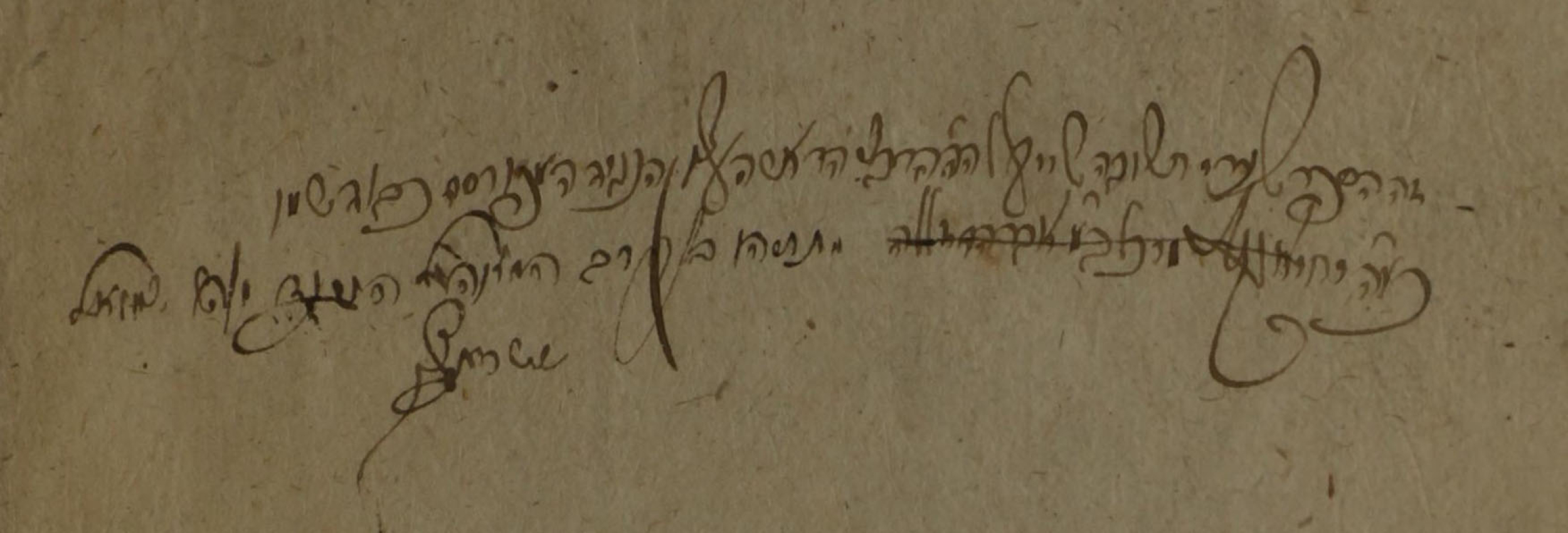
Occasionally, there is evidence that not every reader paid much heed to the idea that books were to be revered and treated as holy objects. It is not that uncommon to come across penmanship practice or bits of arithmetic in the fly-leaves of some books
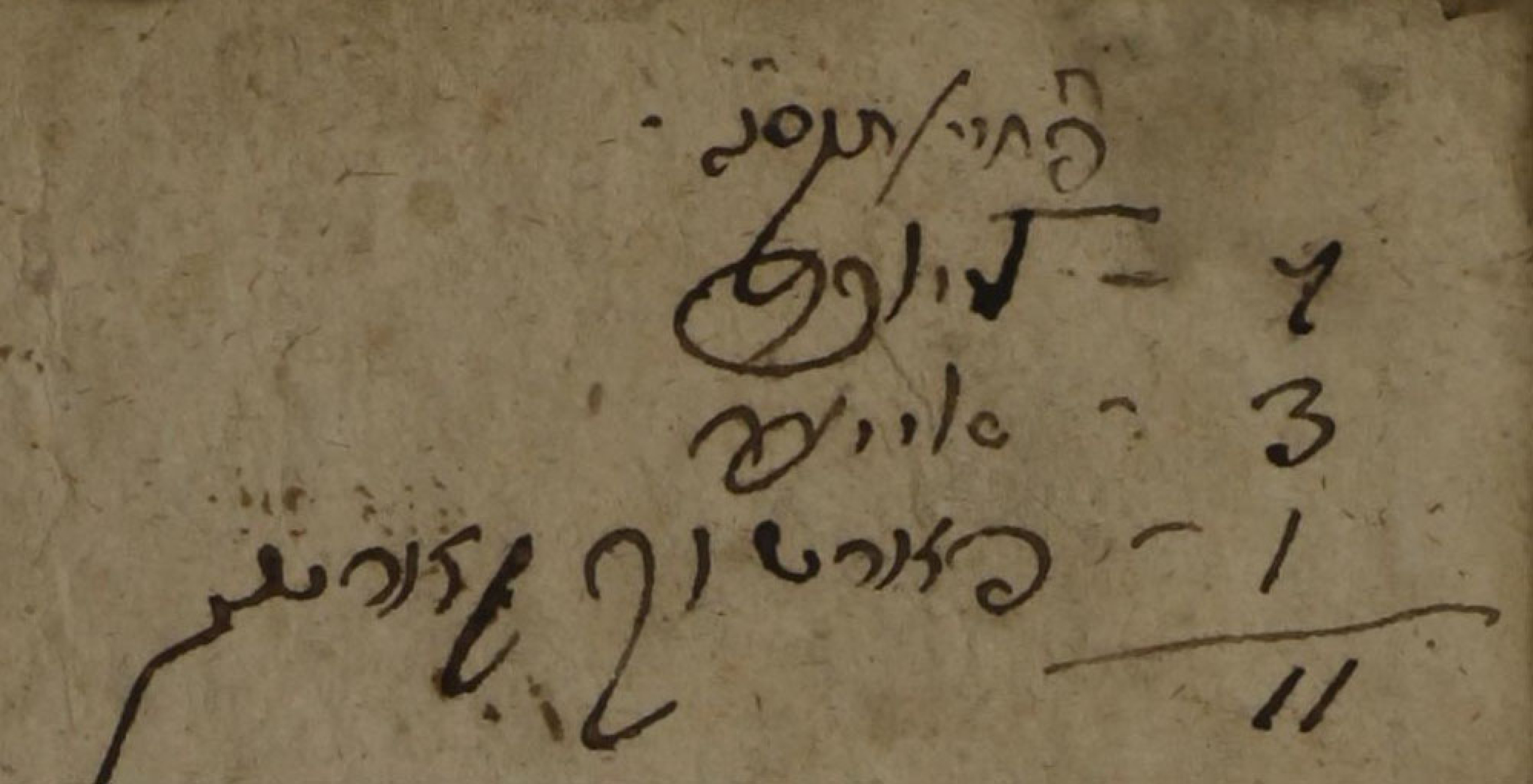
The story of this book, of course, continued long after the deaths of its 19th-century owners. After spending time in the Jewish public library in Vilna, it was targeted for looting by the Nazis. Along with other books, it was hidden by brave Jews in the ghetto. After the war, it was one of the treasures recovered by poets Abraham Sutzkever and Shmerke Kaczerginski, rescued from destruction by Soviet authorities, and smuggled to YIVO in New York.
Roberta Newman is YIVO’s Director of Digital Initiatives.
